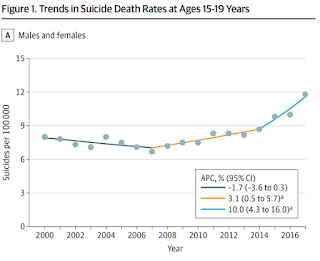Last Dance
America is a land of currency and capitalism. This isn’t a new issue, and has in fact been around for as long as the country itself has been established, and even then the issue can be followed back to our roots in England. In America, it’s a world run by the rich and powerful while the classes underneath desperately reach for scraps that will never be enough. This is perfectly highlighted with Jeff Bezos, CEO of Amazon and the person set to be the world’s first trillionaire, despite the horrible wages and working conditions of his employee’s being far from a secret. The frustrating, yet current situation wraps America up in a pretty bow. In the midst of a pandemic, the rich get richer while the underpaid, overworked lower classes are forced to work until they, quite literally, work themselves to death.
“And on Mondays eight servants, including an extra gardener, toiled all day with mops and scrubbing-brushes and hammers and garden-shears, repairing the ravages of the night before” (Great Gatsby; pg 49). This quote still holds up today. This smaller scale incident exists in society at a larger scale, both in F. Scott Fitzgerald’s time, and now. In Gatsby’s parties, the wealthy eat and party, making a mess without any care. However, once they leave, the responsibility relies on the servants, the working class, to clean up in a party they didn’t partake in. In large scale society, the top 1% get to lay back and take photos from their mansions while their employee’s work full time jobs to make a wage that, in some cases, just hardly supports them.
The rich often don’t need to care about consequences. “I couldn't forgive him or like him, but I saw that what he had done was, to him, entirely justified. It was all very careless and confused. They were careless people, Tom and Daisy – they smashed up things and creatures and then retreated back into their money or their vast carelessness, or whatever it was that kept them together and let other people clean up the mess they had made” (Great Gatsby; pg 184). You can get away with a lot when you have money. If you have enough, you can make practically anything disappear. When scandals come out, and those at the top are exposed for their wrongdoings, next to nothing comes out of it.
An example I used before was Jeff Bezos, and his story works perfectly in here. When the truth about the Amazon workplace came out, people were understandably upset. However, the outrage and boycotting did nothing in the long run. Bezos is still getting richer, and the people working for him are still being run into the ground, and there seems to be no end to that in sight. Unfortunately, the current world situation is really making this lack of care on Bezos’ part apparent. Over 600 employees at the company have gotten sick, and those working for Amazon are beginning to question the companies transparency about their health. “Bobbi Johnson (Amazon employee) heard rumors at her sortation center but only found out there was an infected co-worker after confronting a human resources staffer in the break room. Worried about her immunocompromised children, she took off three days last week and another two this week and is nervous about returning, but she needs the paycheck” (The Washington Post). The lack of transparency on Amazon’s part is beyond shady. The company knows that if the true infection numbers came out, people would stop working for their own safety, and thus money would be lost. It’s not about the people working, but about the product and currency they produce.
The inherent greed and selfishness of those with more money is another central theme in The Rich Brother. Pete has money, and keeps it to himself unless he gets something in return. Donald, however, doesn’t have much wealth, and instead chooses to give away the things he has to those less fortunate, because he’s aware of what it’s like to be in their situation. “I’ll bet his brother is living there,” Pete said. “Doing fifty concurrent life sentences. His brother and his sister and his mom and his dad” (pg 86). Pete is distrusting, willing to jump to the conclusion that every stranger he meets is bad, and is planning to scam him out of money. He’s protective over what he has, to the point where it’s made him slightly bitter.
The current situation in America is one that’s ongoing, and one that will most likely continue for years to come. With each passing day, the rich get richer, becoming more bitter and untrusting, keeping a tight grip on their money. Meanwhile, the working class get more sucked out of them, making it harder for them to survive while the top one percent laughs all the way to the bank.

Blake, the class privilege you highlight here is well-supported and painfully evident in out texts and in our lives. A clearer thesis statement at the beginning would offer a clearer through-line to your audience, but overall good job.
ReplyDelete